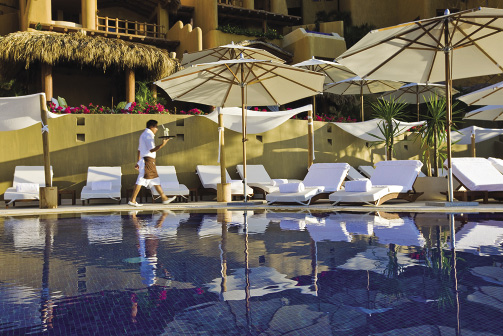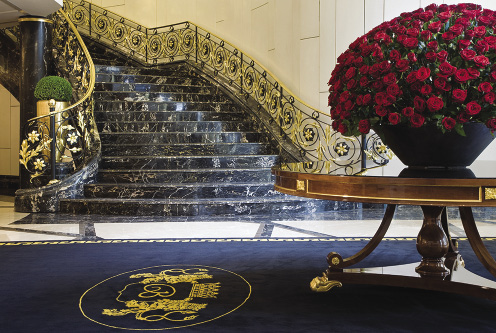


![]()
ONLINE

Creating Excellence
Editors’ Note
In 2002, Horst Schulze formed West Paces Hotel Group, renamed the Capella Hotel Group in 2011. Prior to that, he served as Vice Chairman of The Ritz-Carlton Hotel Company, after serving as President and COO. He had joined Ritz-Carlton as a charter member and VP of Operations in 1983. He was appointed EVP in 1987 and President and COO in 1988. He spent nine years with Hyatt Hotels Corporation, where he was a hotel GM, regional VP, and corporate VP. Before his association with Hyatt, he worked for Hilton Hotels. In 1995, Schulze was awarded the Ishikawa Medal for his personal contributions to the quality movement. In 1999, Johnson & Wales University recognized him with an honorary Doctor of Business Administration degree in Hospitality Management.
Company Brief
Capella Hotel Group (www.capellahotelgroup.com; CHG) provides higher levels of guest satisfaction, guest retention, employee satisfaction, and, ultimately, financial rewards for their owners and investors by delivering superior levels of service excellence for every luxury hotel, spa, and residence they manage. The company offers hospitality management services within four distinct profiles: Capella Hotels; Solís Hotels; Independent Hotels; and Spas, including their own destination spa brand, Auriga.
How has Capella evolved, and what is on the horizon?
I don’t have to raise the flag somewhere and build a career; and I don’t want to make the historic mistakes of the industry and compromise something here and there.
We have six Capellas open – several in construction or development – and each are very unique: in Bangkok, in China, in Doha and in Russia.
So from here on out, it has to be the best of everything or we don’t do it.
Having said that, as the Capella Hotel Group, we would work with independent hotels or our Solis brand, which is what we call affordable luxury.
The traditional luxury market is morphing into ultra-luxury and affordable luxury. The Capella brand is ultra-luxury, and we do Solis similar to a Ritz-Carlton or Four Seasons in the affordable luxury range.
But we continue to grow. We have several Solis under construction, although nothing in the U.S.
For the first time we can say, we may soon make a profit.

Capella Ixtapa pool
How do you define luxury today?
Forty years ago, luxury was big lobbies with glass elevators. Then we moved into a more refined luxury with marble and artwork. The luxury that is in a home, we pulled back into a hotel.
The user today still relates to a dignified and quality surrounding, but the term “luxury” means individualized attention – “Do it my way.” If you do it my way, I have luxury. At the same time, I don’t want anything to distract me.
I feel better about quality, but luxury is treating me the way I want to be treated; create the services I want; and personalize your stuff for me.
Capella caters to this mindset – it’s why we don’t have more than 100 rooms. If you go much more than 100 rooms, you can’t individualize.
When you walk into a Capella property, is there a consistent feel or is it customized depending on the market?
It’s very much about responding to the market.
However, there are several branding ideas: for instance, every guest gets a welcome memento in every hotel. We call you before you show up to ask what we can do for you when you come here; no check-in time, no check-out time.
There are some common service pieces, but what we created is what we call our zeitgeist, and that is the spirit of the moment or what the feeling is in the hotel. What we have been good at doing is duplicating that feeling.
When we started the company, we did studies to find out what the luxury customer wants.
They said they want a sense of exclusivity and intimacy, which you can feel when you walk into the hotel; they also said from a loyalty standpoint, they want Capella Hotels to be loyal to them before they’re loyal to us. They said that the physical things we offer – like shampoos and TVs, for instance – are less important than the experience they have; and finally, the customer wants to connect with our team at a level that they dictate. No one at our hotel wears a nametag, but our customer comments name our employees because they made that connection. The ultra-luxury consumer will pay a premium for this.

Briedenbacher Hof, a Capella Hotel
Do you have to train differently for that type of service?
We have to go through a selection process, and we look less at experience because there is an element of behavior that is more important. In our selection process, we try to identify that behavioral element and look for the experience after.
We created a whole profile for every category so, when we interview, we have questions that will help determine if they will fit in.
We have to spend a lot of time on training. It is still sketchy in the beginning, but we know that when they have the knowledge of the art of service and the other stuff, we end up with better employees. This is why our turnover is very low.
We have a different approach – every category of job has been profiled for what behavior it requires.
How challenging is it to be successful within the food and beverage component?
If you walk into any of our hotels and ask any employees, what is your number-one objective, they will say to keep the guest. So everything is geared to create an environment that the guest wants to come back to. We measure that monthly, and we get a positive response.
They want to come back for the overall experience, which clearly includes bar, food and beverage, and so on.
Capella is a small hotel with a full infrastructure. We’re not necessarily better; we just pay better attention to what the guest wants.
Are you ever fully satisfied?
I believe that real happiness is creating excellence – not duplicating excellence.
A great deal of human happiness is centered around that. This could be creating excellence as a dishwasher – it is not necessarily about creating excellence as a leader of a company. It’s simply creating excellence in what you do in life. If you do that, you cannot just repeat – you have to constantly think about the next dimension, the next excellence. There is no such thing as standing still.
Either you die or you improve. Average is the bottom of good and the top of bad, so average is totally unacceptable. If you lead, you’re no longer average. As a leader, you have to show the way, and that’s what we want to do in the industry.•